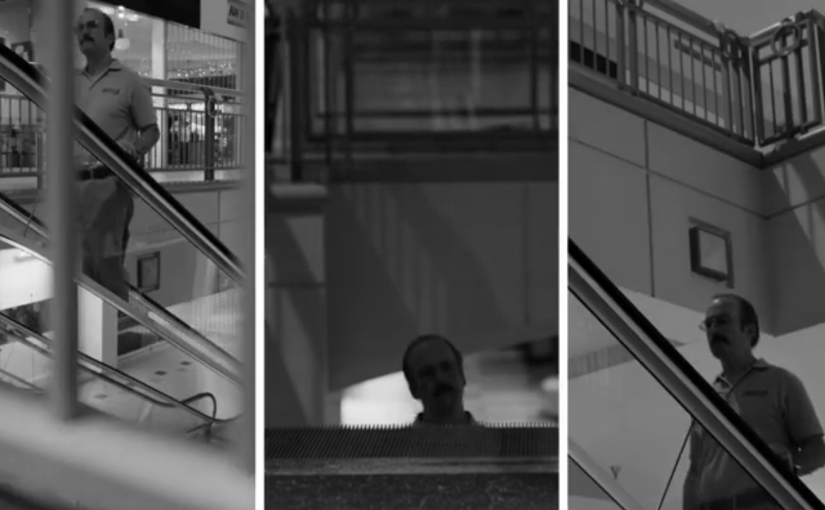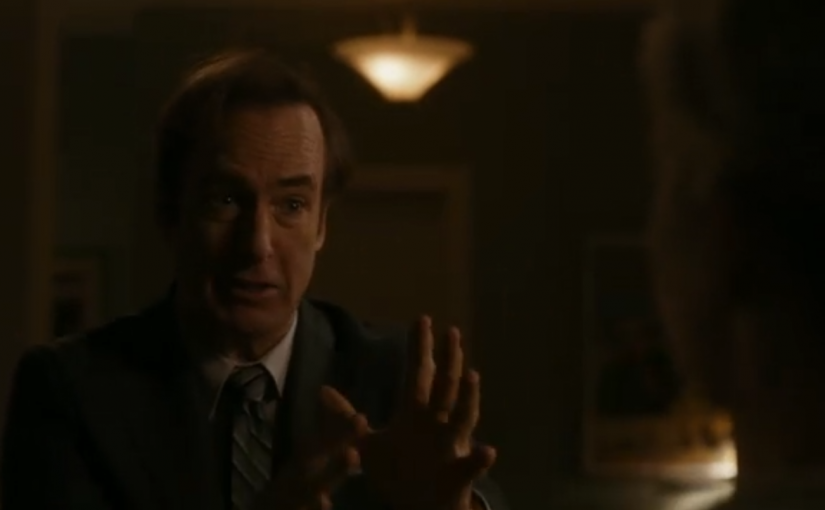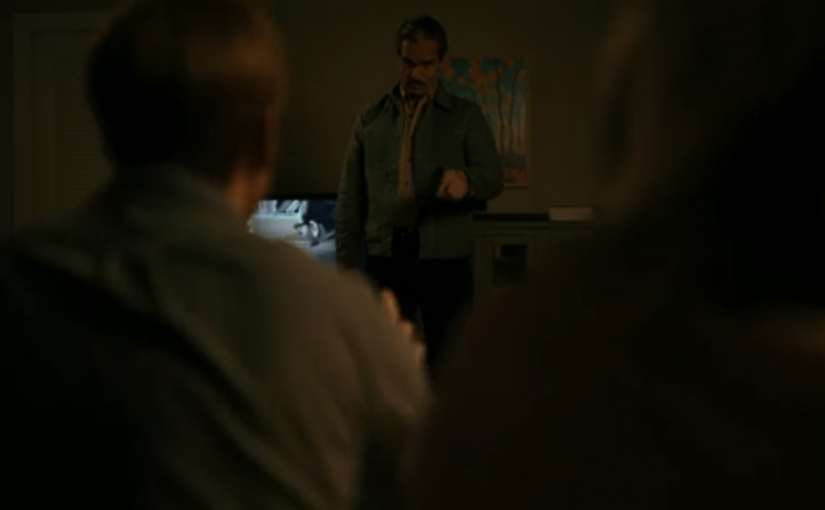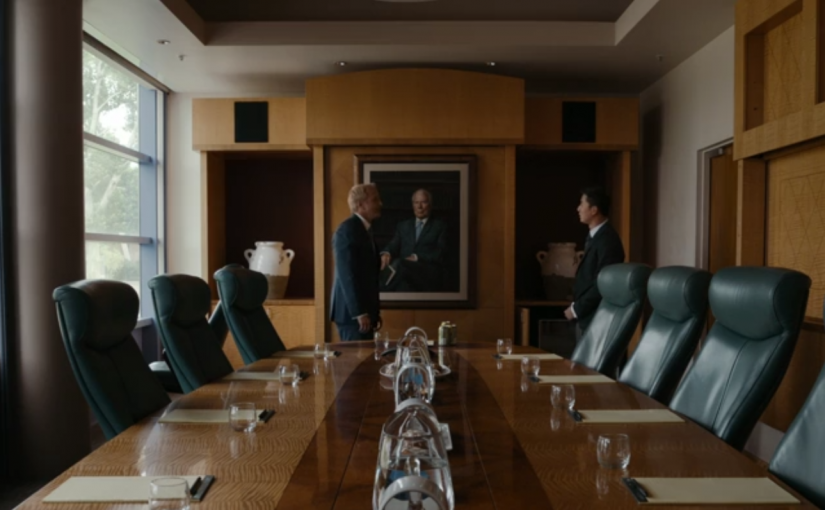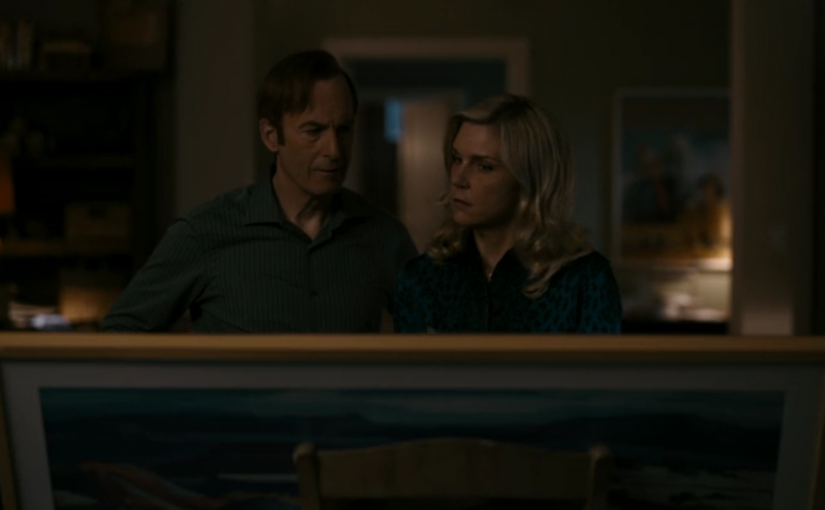Howard did everything right. That, I think, is worth keeping in mind.
Whatever else the man might have struggled with, whatever his personal flaws as a human being, whatever his worries and suspicions, he did everything right. He let things slide when he thought Jimmy was just working through grief. He gave Jimmy his way many times over. He extended olive branches. When he understood that he was being targeted in a more serious way, he stooped down to Jimmy’s level, hoping to resolve things physically while still treating him fairly. He hired a private eye to make sure he knew what was coming. And when everything fell down around him, he still drove to his tormentor’s house with a bottle of wine just to ask one question: Why?
Howard was there to start a fight, sure, but not a brawl. Howard just wanted to know. To understand. He wasn’t worried about what would happen next. He’d land on his feet. (He was certain of that.) But he wanted to know why. He’d done his best many times over to resolve this situation, and he’d failed each time, so now he wanted to get to the root of it. He’d been addressing symptoms all along; he wanted, at last, to diagnose the actual sickness.
He didn’t even hold Jimmy — or much more clearly now Saul — responsible; this is just who Chuck’s brother is. Chuck had warned him many, many times about this. None of this is a surprise. All of this was predictable. Howard just wanted to know why.
Why was he the target? And why to this extent? Because Howard had been a dick at times? Because Howard was fun to mess with? Because Howard wouldn’t fight back in any way that might actually hurt anyone? Just…why?
It’s Kim who disappoints Howard far more. And, again, Howard’s right. Kim is smart. Kim has potential. Kim could do anything…so why is she doing this?
Howard did everything right, aside from assuming that he was still dealing with two human beings.
In conversation with a friend, I discussed rewatching this show eventually with a focus on Kim. For most of Better Call Saul, I saw Kim as a stabilizing influence on Jimmy. I saw her as one of the few truly good people in his life. I saw her as being representative of what he could have if he kept himself morally straight and put his talents to productive use, as he often did early in this show.
The fact, of course, was that by the time of Breaking Bad he was no longer this promising young man; he was a full-time piece of shit. Therefore, the easy reading — the trap I fell into as a viewer — was that the birth of Saul was a result of losing Kim, of losing that stabilizing influence, of losing that promise that he could have something better. With Kim gone, and with those things gone, of course he let himself turn into an awful man.
What else was left? Why stop fighting his worst impulses? With Kim gone, he’d let gravity take him, and that would be that.
Easy reading.
The wrong reading, but an easy one.
Now, I’d be interested in rewatching the show knowing that Jimmy doesn’t surrender to gravity and become Saul; Kim pulls him in that direction.
We saw a bit of that last season, and we’re seeing a lot of that this season. I’d be willing to bet that it was seeded much earlier, but I overlooked it. I overlooked it probably for the same reasons Jimmy — and Howard and Chuck and Cliff and others — overlooked it: We like Kim. Kim is smart. Kim is professional. Kim sure is pretty. Kim is an absolute mountain of positive character traits…she just happens to be a fucking appalling human being at the center. Saul, by contrast, was a mountain of negative character traits, and we spent a large part of this show learning that there’s a decent human being at his center. By the time of Breaking Bad that may no longer matter, but watching that decent human being get buried is the most engrossing thing about Better Call Saul…especially now when we realize just how much of the shoveling Kim has been doing.
In “Carrot and Stick,” during Saul’s attempt to convince the Kettlemans that Howard is a drug addict, Betsy Kettleman quickly concludes that he must mean “that awful woman with the ponytail.” It’s a great line. It’s funny. Saul immediately corrects her. But that moment stuck with me. As an outsider, without the time to become enamored with Kim, with Kim’s intelligence, with Kim’s professionalism, with anything else that has made us all fall for Kim, Betsy Kettleman saw her clearly and honestly. Saul tells her she’s wrong — of course he does, and he even believes it — but she’s more correct than anybody else has been. She got a bad feeling about Kim. She’s remembered it all this time. Something about Kim just didn’t feel…right.
She didn’t give Kim the chance to change her mind. As such, she’s got the best possible view of who Kim actually is.
None of this is meant to exonerate Saul, or even Jimmy. We are all culpable for our own actions. But Kim is the explanation for why a man who still has a sense of morality keeps choosing to do the wrong thing. It’s not solely for love of money or other rewards. It’s not solely because the guy loves theatrics. It’s not even because that’s who he’s destined to be. It’s because he has exactly one person in his life who he cares about, and that person keeps tugging him in the wrong direction. That’s who Kim is. Kim is gravity.
And so Howard is gone. Saul’s decisions have resulted in the deaths of an H and an M in HHM. Rather than pull himself up higher, he’s pulled others down. The law firm that gave him his start — albeit a very humble one — is now the irreversible victim of his antics. He’s devoured and then shat out the hand that fed him.
I worried at the start of this season that Better Call Saul had too many pieces on the board, and while it wasn’t impossible for the show to bring all of them together for a satisfying conclusion, I did wonder how likely that would be. “Rock and Hard Place” and now “Plan and Execution” have proven that the show knew full well how difficult it would be to bring all plot threads together and resolve things in a way that felt natural. It’s chosen to go another route. It’s chosen to remove pieces from play in ways that were right, well before the climax.
Sure, both Nacho and Howard feel, in the moment, like abrupt removals, but I think it would be difficult to argue that they also didn’t feel right. The particular circumstances of Nacho’s death were due entirely to the choices he himself had made. He dug his own grave, basically, and eventually the only decision he had left to make was how, exactly, to climb down into it.
Howard’s death is just as right, but from another angle. His decisions did not damn him; Saul and Kim made the decisions that damned him. In most cases, they knew what they were doing. In other cases, they didn’t, but they knew exactly the kinds of dangerous people with whom they were aligning themselves. They knew that somebody would eventually get hurt. On some level, they knew that even the people they cared about were in danger. It would just be a matter of time before one set of their associates crossed over with the other. It’s only natural. It’s inevitable. In “Plan and Execution,” it happened. They set out to ruin Howard’s life in one respect, and then ruined it in another.
It was Saul’s choice to let Eduardo go free. It was Kim’s choice to remain a friend to the cartel rather than explain what happened. These two adults who knew better decided to play with fire. The resulting blaze took an innocent man. Like the best aspects of Breaking Bad, we can trace the chaos, step by step, all the way back through the decisions we’ve been watching our characters make from the start. Better Call Saul didn’t cheat. It didn’t thrust us into a disorienting scene for the sake of shock. It walked us through this journey, choice after choice after choice after choice, and then the door opened and we saw who had come to visit.
There are a few things that I really enjoyed about “Plan and Execution,” beyond the quality of its narrative. I liked how elegantly we learned how Howard and Saul were both working with the same private investigator. We learned exactly the way Howard learned; he reflected on what mistake he could have made to get to that point. That’s it. We never needed to see that phone conversation in a previous episode, because it wasn’t significant to Howard at the time anyway. We just need to hear about it now, as he realizes that it was significant, whether or not he knew it.
And I liked the fact that we essentially sidelined Saul and Kim in favor of just watching the mediation unfold. They called in to the meeting, we’d cut back to them now and then, but, ultimately, the show didn’t contrive a situation in which they were present or involved, keeping the plates spinning. The pair did a good enough job planning everything that Better Call Saul was able to just let the execution play out, minute by minute, without them in the room. I enjoyed that a lot.
“Plan and Execution” could have had Saul and Kim running around madly, scrambling to keep things on track, like we saw at the start of this episode when they needed to reshoot some photographs. The episode could have had more things go wrong that required quick thinking and fast action. Technically, that would have been more exciting. That also would have been more artificial. Simply watching the events play out was, in my opinion, far more engaging.
I do wonder if Eduardo’s reappearance — just then, just there, in just those circumstances — wouldn’t have hit harder and better if we hadn’t already followed the guy overseas and then into the sewers. I’m not convinced that losing Tony Dalton completely between the first and final episode of this half-season would have been the right impulse, but I do at least wonder. Granted, we had to set up whatever he’s going to do next with Gus and the superlab, but without knowing where that goes — or how much information we need in advance — I’m at least curious. That second flicker of the candle as the door opens one more time could potentially have been even more chilling, especially if we’d had enough time to forget that Eduardo were an active threat.
That’s just theoretical nitpicking, however. And I’m not even dissatisfied with how things turned out here, at all. “Axe and Grind” was the setup to a punchline, and “Plan and Execution” was about as strong a punchline as anyone could have asked for. It’s a reminder, and an important one, of the serious damage that Saul Goodman does to those around him. When people deal with Jimmy, they get hurt. When people deal with Saul, they get killed.
We’ve got just half a season to go, and we’re getting much closer to being left with only the characters who make it to Breaking Bad. Of the few questions remaining, not all of them will even need to be resolved. Kim will and Eduardo will. Otherwise, though? We don’t necessarily need to learn what happens to Cliff, or to Saul’s production crew, which is a polite way of saying “they might all survive.”
Better Call Saul has already significantly narrowed its focus for its final stretch of episodes. That’s exciting and worrying. Until recently, it was pretty easy to conclude that the stakes in this show were lower than they were in Breaking Bad, with people’s spirits on the line rather than their lives. After all, this very episode was the terminal point for Saul and Kim’s plan, which essentially boiled down to making Howard look like an idiot and dilating his eyes. Harmless stuff, relatively speaking, and everybody knew the guy would land on his feet.
Instead, we see him land on his face.
But, hey, maybe the stakes are lower, technically. Even so, they feel sky high, and that’s a perfect and impressive way to end this half of the season.
Now we all get to twiddle our thumbs for a month and a half, as the characters figure out what to do with that body and decide what they will let happen next.
Thanks for joining me. Hopefully I’ll see you then.
